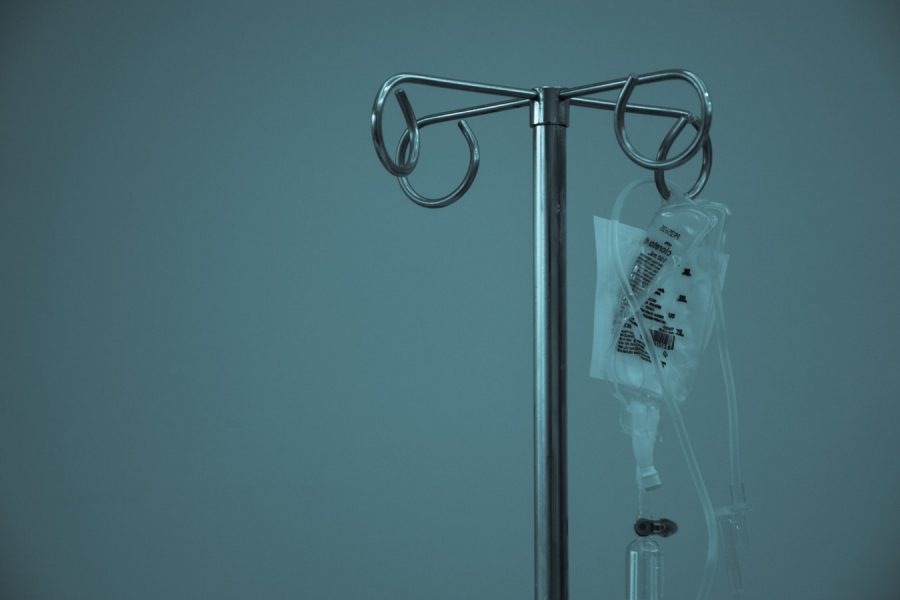The battle against liberty and humanity: serving those who want to cease and killing those who want to live
December 4, 2018
“I’m not afraid of being dead. I’m just afraid of what you might have to go through to get there,” – Pamela Bone (GoodReads).
The whole notion of pain, physical pain, as well as psychic pain, is up for debate.
According to the Dictionary, Euthanasia is “the painless killing of a patient suffering from an incurable and painful disease or in an irreversible coma.”
The practice can also be called the “mercy killing”, summing up the painless death for those who suffer by solemnly existing.
What’s euthanasia?
Medically suffering patients use Euthanasia to their advantage, and on rare occasions, the mentally ill use it too. Euthanasia is a vital but rarely discussed topic, that is considered a significant concept for people who are suffering from diseases causing extreme pain or an unstable mental state. Euthanasia is a topic where both sides have valid reasons, considering it to be a very controversial and debatable topic.
Looking at Euthanasia from both lenses
Those who are for this mercy killing method believe that, as humans, we have rights. Those rights should be able to overthrow the opposing side’s argument. Those in favor of euthanasia also argue that a society should allow people to die in dignity and without pain. They also believe that it should be allowed that others may help them do so if they cannot manage it on their own. The opposers believe that this is just an excuse and consider it murder. Whatever the reason, whether it’s an incurable disease or depression, would you allow and continue to watch as your loved ones suffer a lifelessly-long death or support of them to discard any of their current misery, painlessly, and legally?
Why it should be legal
Imagine if you had all of your rights to make decisions taken away from you. If terminally ill patients were unable to do voluntary repatriation, they’d probably be in great pain as well as misery. Doctors must do everything they can until they can determine if the patient is terminally ill. Many would consider the idea of using euthanasia to their advantage, rather than having to deal with a prolonged and painful life.
The 14th amendment says it all
The 14th amendment states that: “All persons born or naturalized in the United States and subject to the jurisdiction thereof, are citizens of the United States and of the State wherein they reside. No State shall make or enforce any law which shall abridge the privileges or immunities of citizens of the United States; nor shall any State deprive any person of life, liberty, or property, without due process of law; nor deny to any person within its jurisdiction the equal protection of the laws.” (Cornell).
In the amendment, it declares that “One’s right shall not be deprived by life, liberty, and/or property,” empowering advocates to believe that a patient’s capabilities to use euthanasia should not be exercised or taken away from them for any reason or purpose.
The sufferings of euthanasia patients
Another major argument in favor of Euthanasia is that the person affected is grieving from unbearable pain, they would have to contemplate death as a form of discharge. Diseases such as Ebola, Fatal Familial Insomnia, and Polyglandular Addison’s Disease, not only consist of great pain but is also, incurable. These kinds of illness and diseases are unable to be eliminated despite our era’s technology and knowledge.
Facts and statistics
In our country of America, there are only a few states that have legalized Euthanasia and assisted suicide.
Those few contain Washington.
Oregon alone had “35,598 people who died in 2015, and 0.39% of them were reported as physician-assisted suicides.” (Emanuel, Ej).
Marked as the country in Europe, Netherlands was the first country to legalize the practice of euthanasia. They did so in April of 2002. The Netherlands had much more deaths by Euthanasia compared to Oregon.
“It imposed a strict set of conditions: the patient must be suffering unbearable pain, their illness must be incurable, and the demand must be in ‘full consciousness’ by the patient. In 2010 3,136 people were given a lethal cocktail under medical suspension.” (The Guardians).
A human’s rights and intolerable pain are only two reasons why Euthanasia should be considered ethical.
So why might there be opposers who don’t think about the pain of the patients and their rights?
There are religious individuals who believe that a human life is a sacred gift from God. “Hence God has created you and given you a life, you must value it. It’s not up to you to decide whether or not you may leave the world, but God’s.”
Not only that, but they also look at Euthanasia with a pro-life stance. Besides that fact, the opposers try to develop “what ifs.” They fear what is to come in the future. The argument of “slippery slope” states that once we have allowed physicians to take control and kill the patients, we will not be able to limit those who want to die and those who are forced to die. They believe that once we -the people, government, and society- decide to legalize voluntary Euthanasia, the public will soon allow involuntary euthanasia.
“This is based on the idea that if we change the law to allow a person to help somebody die, we won’t be able to control it.” (BBC).
Not only is this misleading and inaccurate, but there’s also no evidence whatsoever that suggests strictly controlled voluntary Euthanasia would lead to the mass killing of the ill, elderly, and depressed against their will without a consent.
As Professor of the Law at Oxford and New York University, Ronald Dworkin, said in 1994: “Of course doctors know the moral difference between helping people who beg to die and killing those who want to live. If anything, ignoring the pain of a terminally ill patient pleading for death rather than trying to help them seems more likely to chill a doctor’s human instincts.”
The Washington Supreme Court was afraid of the slippery slope as well.
“The Court also felt that if it declared physician-assisted suicide a constitutionally protected right, it would start down the path to voluntary and perhaps involuntary euthanasia.”
Though that may not be the case, because after evaluation, the court approved of the Washington Death with Dignity Act in 2008. Euthanasia and assisted suicide in Washington are legal but must be followed by strict guidelines. Since then, there has not been a case where the Euthanasia, assisted suicide process was involuntary. Not only in Washington but everywhere else. By saying that it might eventually lead to a mass of deaths, may not be so dependable.
Would people really choose to be half-dead every day for the rest of their lives, being connected to a machine? Or would they prefer to die with their loved ones by their sides of a quick and painless death?
Euthanasia shouldn’t be something illegal. Having to live life in pain all the time on a hospital bed isn’t something majority of the people would look up to. With the assistance of Euthanasia, patients have had the choice of ending their suffering.
Opposers of Euthanasia say that it’s sinful to kill “a good and valuable life,” but is it still good if you are going through hardships every single day?
It’s even a more inhumane task to do if you strive to keep someone who’d like to pass without having to bear the great pain. By not granting euthanasia the opportunity to be legal, people are making it obligated for someone to stay alive.
Euthanasia saves money that could be used to cure other patients. Furthermore, death is inevitable for everyone; it is one of the few things promised in life. Isn’t suffering from an incurable disease and knowing you will die more painful than death itself?
In conclusion, mercy killing is a humane, moral and logical option that everyone should have the choice to elect. Above all, it is a right to be able to choose how you die, it is your own body. So, say “YES” to euthanasia, say yes to having a choice.
Source:
– https://www.goodreads.com/quotes/398347-i-m-not-afraid-of-being-dead-i-m-just-afraid-
– http://www.americaslibrary.gov/jb/recon/jb_recon_revised_1.html – https://www.law.cornell.edu/supremecourt/text/521/702 – https://en.wikipedia.org/wiki/Washington_v._Glucksberg – http://www.bbc.co.uk/ethics/euthanasia/against/against_1.shtml – https://www.ncbi.nlm.nih.gov/m/pubmed/27380345/






